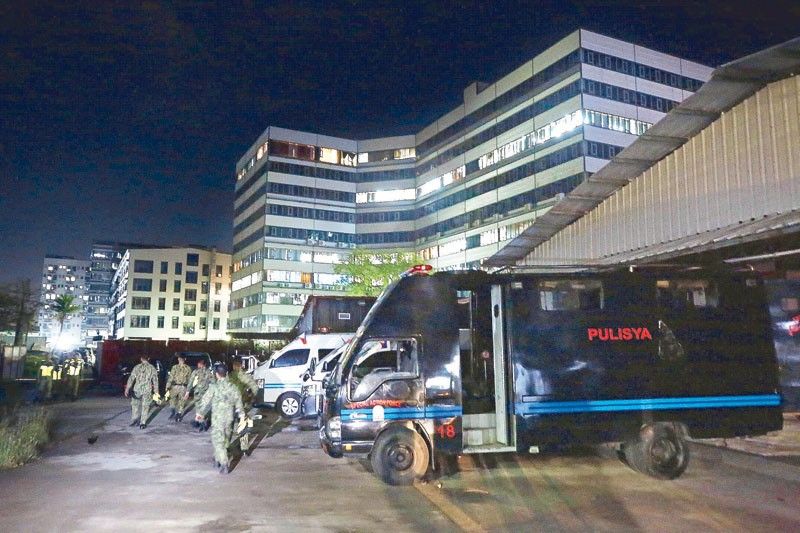2,724 POGO workers rescued in Las Piñas

MANILA, Philippines — Over 2,700 people, a significant number of them foreigners, who are suspected victims of human trafficking were rescued from a Philippine offshore gaming operator (POGO) in Las Piñas City at past midnight yesterday.
Col. Jean Fajardo, spokesperson of the Philippine National Police (PNP), said joint teams from the National Capital Region Police Office (NCRPO), Intelligence Group (IG) and Anti-Cybercrime Group (ACG) raided several buildings in a compound along Alabang Zapote Road in Barangay Almanza Uno.
“The IG received information on the presence of foreigners in one of the buildings,” Fajardo said in Filipino during a news briefing at Camp Crame.
According to Fajardo, only two of the eight buildings had business permits to operate.
Acting on the information, police armed with search warrants raided the buildings and rescued the workers.
The warrants were for the alleged violation of the Expanded Anti-Trafficking in Persons Act.
Data from the ACG showed that up to 2,724 people were rescued. Of this number, 1,534 are Filipinos while 604 are Chinese citizens.
The ACG said 183 are Vietnamese, 137 are Indonesians and 134 are from Malaysia. The rest belong to other nationalities.
Fajardo said some personalities were apprehended but their names were not available as of yesterday afternoon.
She described the suspects as maintainers, operators and financiers of the buildings.
The suspects face charges of human trafficking in relation to Republic Act 10175 or the Cybercrime Prevention Act.
The NCRPO identified the owner, maintainer and facilitator of the compound as Abbey Ng or alias “Quiha Lu,” “Liangfei Chen” and “Jimmy Lin.”
The compound was under Xinchuang Network Technology Inc., formerly known as “Hong Tai.”
Also named in the warrants were Danica Andres Mensah, Olivero Ong, Divina Trillanes Visal and Daisy Vidal Cidro, who were identified as incorporators of Xinchuang Network Technology Inc.
According to ACG spokesperson Capt. Michelle Sabino, the victims said they were employees of an “online casino” recruited through job postings on social media.
- Latest
- Trending































